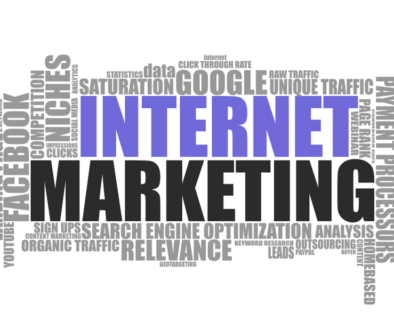SEO and Social: Future Synthesis

Earlier today, Mani Karthik posted some interesting insights on SEO in the wake of social media for Search Engine Land. Strong stuff—here’s a quick summary of his points.
Don’t Jump the Gun
Many speak of SEO as if it were already dead, or as if it had been replaced for good by the ubiquitous forces of Social Media. These fears aren’t entirely unfounded—search updates like Penguin and Panda have a way of igniting controversy—but let’s not get carried away. It’s still far too early in the game to call any shots. Recognizing that the industry is in transition, what we can say is that certain traditional (as it were) search engine signals are being supplanted as more accurate, genuine measures of content efficacy come into play. As the scales of importance tip, we have to be extra careful not to write off efforts which can still benefit searchability or reputation in the long-term. Social media remains a value-adding proposition, more than ever, but SEO as an enterprise has resources too rich and roots too deep to just up and vanish.
Zooming In
Using “social” as a term already paints with too broad a brush. Which platforms, and why? To understand this, let’s take a look at the evolution of web behavior (particularly with regard to consumer habits) over the years. Search algorithms haven’t fundamentally changed in purpose: they’re designed to return the best possible results quickly, presented in an uncluttered interface to improve the user experience. Concurrently, though, the nature of web communication and the treatment of content have fundamentally changed. You don’t have to go too far back to see how new the concept of “curated sharing” really is in the grand scheme of things. Around the turn of the millennium, search engines really only focused on indexing mountains of data by relevance to satisfy this or that particular query. These primitive algorithms parsed by basic user behaviors and rudimentary filtering, but didn’t do much beyond that.
A Sea Change
Over time, we learned that users prefer to share information in smaller, more frequent pieces, and increased autonomy has led to more widespread authority instead of concentrating it in a few major silos. In the old days, trustworthiness was a function of “trust,” defined by the volume of links your site had. Lacking a reliable way to judge content, search engines attributed authority to Wikipedia, established brands, and academia. Now, however, search engines recognize and promote social signals as an organic way of identifying and communicating value. So instead of just links, they now look at likes, shares, tweets, and other human elements in the equation.
Down the Rabbit Hole
But the story doesn’t stop there. It’s pretty astounding how sophisticated social parameters and metrics have become in the present day: think engagement levels, reach amplification, frequency, co-citations, demographics, circles, etc. And it’s not as if no one thought of these before—they’ve long been a target for TV and radio—but rather, raw data can now be processed in meaningful ways, eliminating guesswork in the analysis.
All of this is to say that social media is so integral to the core of SEO that it doesn’t make sense to speak of it as replacing SEO in the battle for refined search. The symbiosis benefits both, as many digital integrations are wont to do, and therein lies the ingenuity. And, of course, we should expect changes to continue; optimization is still largely a learning process.
Coming Up Next in SEO and Social
So what will happen to social media if SEO is evolving at such a rapid pace? Well, much the same thing. It’s useful to frame the discussion in terms of simplified technology: streamlined or intuitive controls reflect ever more nuanced subtleties in user behavior, and can even become dominant enough to directly influence behavior. Think about the difference between a cumbersome search on AskJeeves and a voice-activated search using Siri for iPhone. That’s not even getting into the next generation, exemplified by Google Glass and other augmented-reality devices, which could eventually communicate fluently across limitless media. As these technologies hone their effectiveness, we may see some truly mind-blowing changes:
• Websites free of any SEO campaigns, instead accruing value and relevance solely through social citation.
• Search engines capitalizing on people’s recommendations in novel ways, weighing value not through explicit likes or shares, but rather aggregated impact in real time across a multitude of loci.
• Local search exploding in importance and customization.
• More sophisticated platforms addressing emerging populations and differentiating from one another in ways that speak more strongly to certain types.
• An implosion or state change in “authority” to incorporate personal influence, circles, and redefined domain expertise.
• Merged Web and Social search with strategic intersections.
And that’s just the tip of the iceberg. When we consider search in terms of two variables—User and Data—we can already see powerful boosts in efficiency, simplicity, and relevance in how the two interact. And we can be certain that the demand that spurred the innovations we’re witnessing will continue to refine any and all processes over the next decade and beyond. And, as always, the marketer who can think like a bot is the one who will find success—the difference being that it may soon become feasible to program bots to recognize value with something approaching the human mind.


